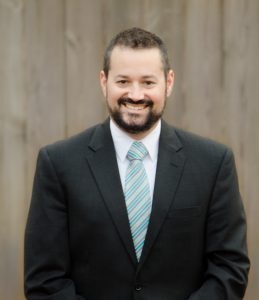By Matt Gross, Policy Director
 I understand why people are tired of politics. The current political climate at both the state and federal level is marked by hyper-partisan polarization, and there are times when it feels like the gap between the left and the right is widening to the point where it can no longer be bridged.
I understand why people are tired of politics. The current political climate at both the state and federal level is marked by hyper-partisan polarization, and there are times when it feels like the gap between the left and the right is widening to the point where it can no longer be bridged.
But I’m here to tell you that it can. Since joining NC Child, I’ve been part of a broad, bipartisan effort to keep kids out of the adult court system. North Carolina is one of two states in the country that charges all 16- and 17-year-olds as adults, even for minor crimes like littering or stealing a bag of potato chips. This leaves kids with a permanent adult criminal record that makes it difficult to find a job, get a higher education, or even find housing. It’s no surprise that children charged in the adult system are more likely to commit another crime than those charged in the juvenile system.
Over the years, a wide range of politicians and organizations have recognized that charging these youth as adults is bad for public safety and bad for youth. These organizations include conservative-leaning groups, such as the John Locke Foundation and the North Carolina Faith and Freedom Coalition, and progressive-leaning organizations, such as the NC Justice Center, the ACLU, and the NC NAACP. Over the past year, law enforcement associations, like the NC Chiefs of Police and NC Sheriff’s Association, have also backed the proposal.
I remember sitting in meeting in December with representatives of many of these groups around the table and wishing that North Carolinians could see these people with differing ideologies and policy goals coming together to support a common cause they all agreed upon. It is a reminder that good ideas, with some compromise, can still unite us.
As we head into the 2017 session Raise the Age has more bipartisan support than ever before. It is the top legislative priority for NC Supreme Court Chief Justice Mark Martin, a registered Republican, and has broad support from a bipartisan group of legislators from both the state legislature. We are optimistic that this is the year legislators will follow the lead of the ideologically diverse group of supporters and vote to stop charging youth as adults for minor crimes.
Beyond the specific implications of this policy, working on this legislation suggests to me that it’s possible to come together around good ideas and that the well-being of children can be a unifying force. Don’t get me wrong—I’m not naïve and understand that a partisan divide will remain and some important children’s issues will likely go unaddressed. But if we have good ideas that we are passionate about, we have a responsibility to reach out to people and start a conversation. At times our politics may be divided, but there are plenty of people out there who are still willing to put political differences aside to support good ideas that can improve children’s lives.
